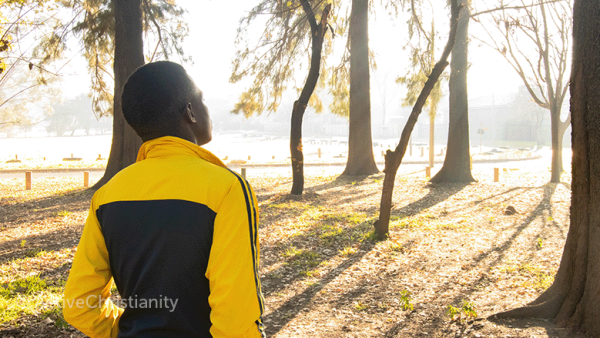When God created people, He gave them something very special. He gave them a free will so that they could make their own decisions.
The Fall (Genesis 3) happened because Adam and Eve used their free will to listen to Satan. But we can use that same free will to choose to accept the salvation that Jesus came with, and to follow Him.
You harvest what you sow
God, who has all power and all wisdom, has given each person a free will. That does not mean that we can do whatever we want without any consequences, because even though we have a free will, we are still responsible for the decisions that we make. In the Bible, the thoughts we choose to think, the words we choose to speak and the actions we choose to take, are compared to sowing seeds on the land. We can choose to sow whatever seeds we want to, but once the seed is sown, we cannot choose what we will harvest.
“You will always harvest what you plant [sow]. Those who live only to satisfy their own sinful nature will harvest decay and death from that sinful nature. But those who live to please the Spirit will harvest everlasting life from the Spirit.” Galatians 6:7-8 (NLT).
Accept other people’s free will
Just as God accepts our free will, we must also accept the free will of others. Does that mean that we have no responsibility for anyone else? Of course not. Just think of children. If a child is very young, his parents cannot simply think, “Well, children have a free will too, so they should be allowed to do whatever they want to do.”
Parents are responsible for the upbringing of their children. But as their children grow older, the parents must find the right balance between the child’s free will and the parents' responsibility to raise and teach that child.
We have a lot to learn in this area. For example, as parents, we should not rule over our children; and we should not try to turn them into copies of ourselves. Instead, we should be examples for them, have them on our hearts, and pray for them! We should keep contact with them and help them understand things clearly, instead of making it difficult for them with a lot of rules.
Paul as an example
It is the same with our relationships with other people. We can learn a lot when we read how Paul behaved toward Philemon when he was discussing Onesimus, Philemon’s slave who was in Rome and had been converted. We read this in Philemon 1:8-9 (GNT), “I could be bold enough, as your brother in Christ, to order you to do what should be done. But because I love you, I make a request instead.” He goes on in verse 14, “I do not want to force you to help me; rather, I would like for you to do it of your own free will. So I will not do anything unless you agree.”
Serving and blessing of your own free will
To accept the other’s free will is also very important when it comes to serving and giving in the church. Then wisdom can teach us the fine laws about our relationships with each other. On the one hand, we must never rule over one another, talk angrily to another, or have demands on one another. At the same time, we must bear one another on our hearts, pray for one another, encourage and help one another.
Our goal must be that people should willingly choose to do God’s will, that they really want to do His will. Then their love for Christ will lead them into the perfect law of freedom, as is written about in James 1:25. When they come into this perfect law of freedom, they will want to serve and bless the others - from the heart, with joy and from their own free will.




